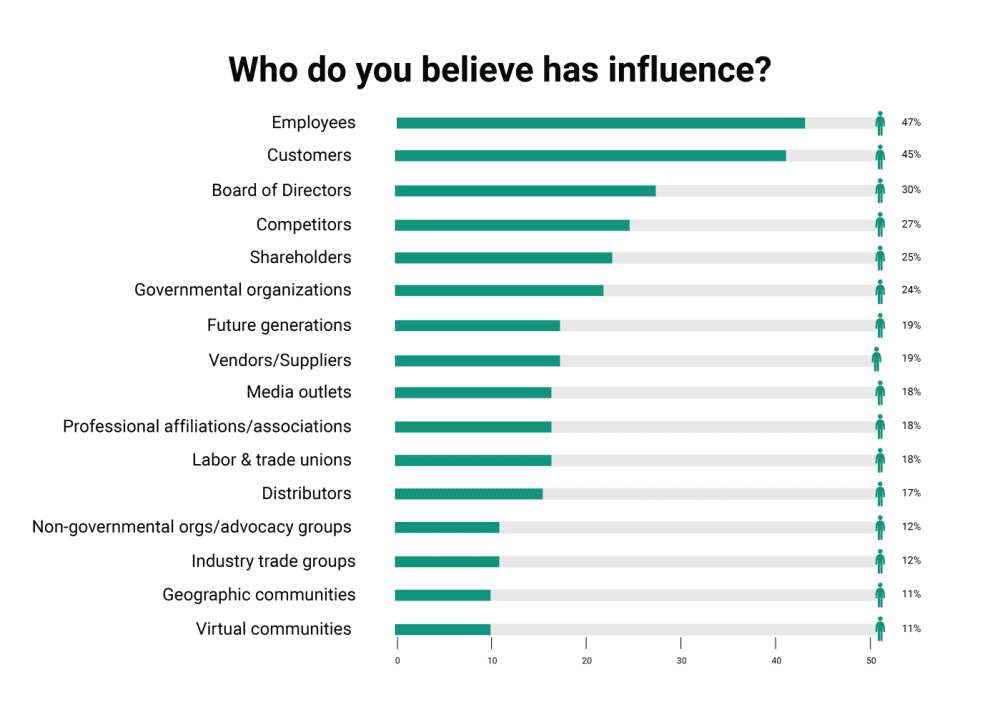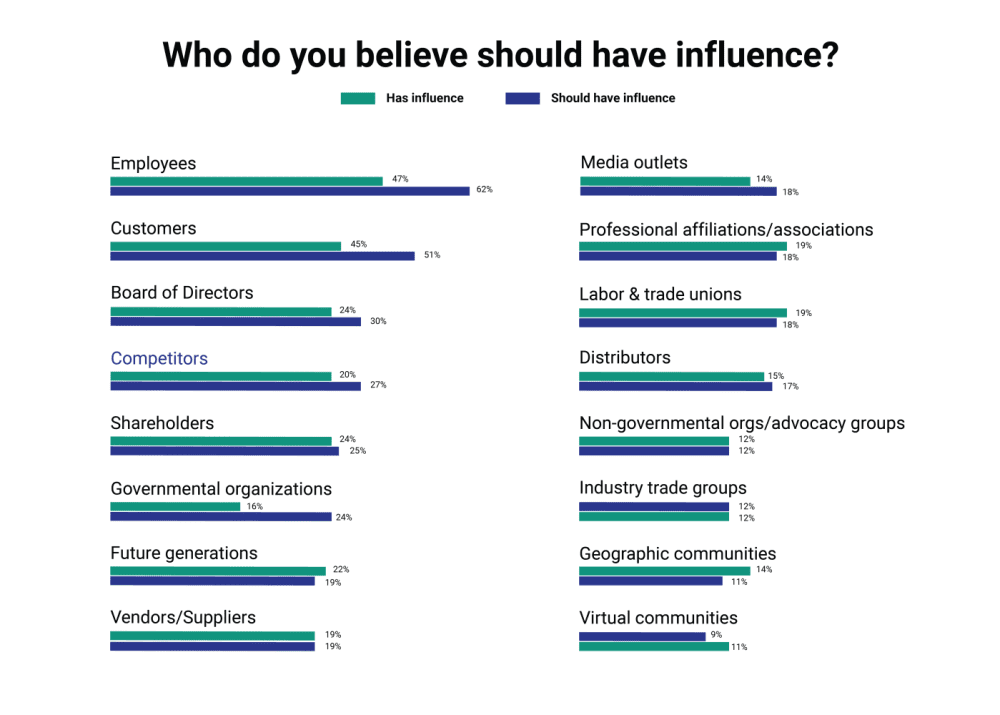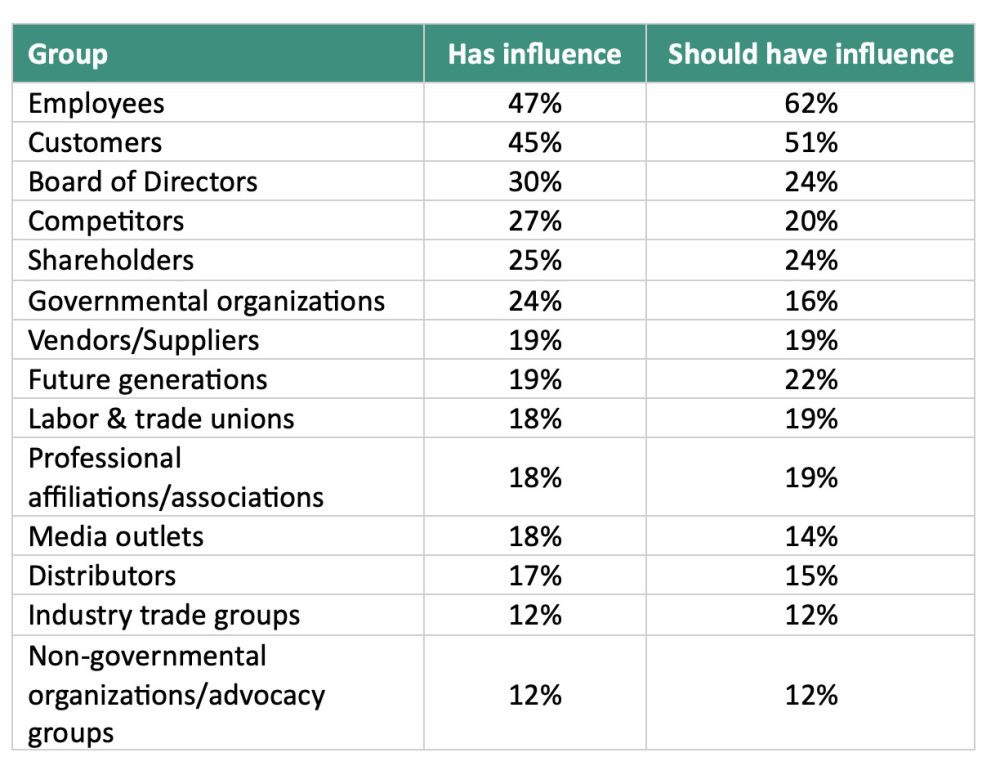
Those of us who communicate for a living are in the business of influence. We shape the reputations of our organizations, the narratives coming from leaders’ mouths, and — critically — the stories we tell ourselves about who we are. But today, we seek influence in a media and information landscape of unprecedented complexity.
One way for leaders to think about that landscape is as a network of influence. Your network is vastly larger than it was 10 years ago, and it has no clear boundaries. New voices can join at any time. Ideas flow continuously in all directions. You can’t control the narrative, and you often can’t predict the context in which your messages will land. You’re doing improv, and you have to read the room every minute.
At Integral, the employee experience agency I founded five years ago this month, we have always argued that the most influential voices in any organization’s network are its employees.
Employees agree.
This month, as part of our ongoing partnership with the Harris Poll, we conducted a national survey of 1,200 employees to understand how they think about influence within their organizations. We asked both “who has influence?” and “who should have influence?”.
The results were striking. We gave respondents a list of 16 constituencies and asked them which ones they believe have the most influence on their company’s actions. The group most often cited as influential was employees – ahead of customers, the board of directors, competitors, and shareholders:

Next, we asked who should have influence on their company’s actions:

While the top answers were similar, there were important differences. Far more respondents said employees should be influential than said employees are influential – 62% to 47%, the largest gap in our survey. Respondents also said customers should be more influential than they are (51% to 45%), while boards of directors and competitors should be less influential than they are:

The results also underscored the fact that employees are a diverse public with needs and attitudes that vary by age, race/ethnicity, gender, political philosophy, and other factors.
- For example: Male employees are more likely than female employees to say that several groups should have influence over their company’s actions: the Board of Directors (29% vs. 18%), Shareholders (28% vs. 19%), and Distributors (18% vs. 11%)
- Black employees are far more likely than either Hispanic or white employees to cite racial inequality and related issues as something they would like to see their employer influence in society (38% vs. 17% and 12%, respectively.)
- Younger employees are more likely than employees ages 45+ to advocate for the influence of labor and trade unions (25%) professional affiliations/associations (24%), distributors (22%), media outlets (22%) and geographic communities (10%).
While there is a wealth of data to be found in our survey results – reach out if you want to learn more — the most important takeaway is that your employees are the leading voices in your network, and they want to be.
Employees are your most important public. Listen to them. Understand them. Engage them in and enable a multidirectional dialogue. When they talk about your organization – on LinkedIn, Glassdoor, Fishbowl, or a dozen other channels – their voices will be the among the most trusted. And, not coincidentally, those engaged employees will be a huge driver of your business results.

Ethan McCarty is the CEO of Integral, an award-winning Employee Experience Agency. He lectures at Columbia University in New York City and is a member of the Forbes Business Council. He currently is a member of the Institute for Public Relation’s Board of Trustees and is Director of the IPR Organizational Communication Research Center.



